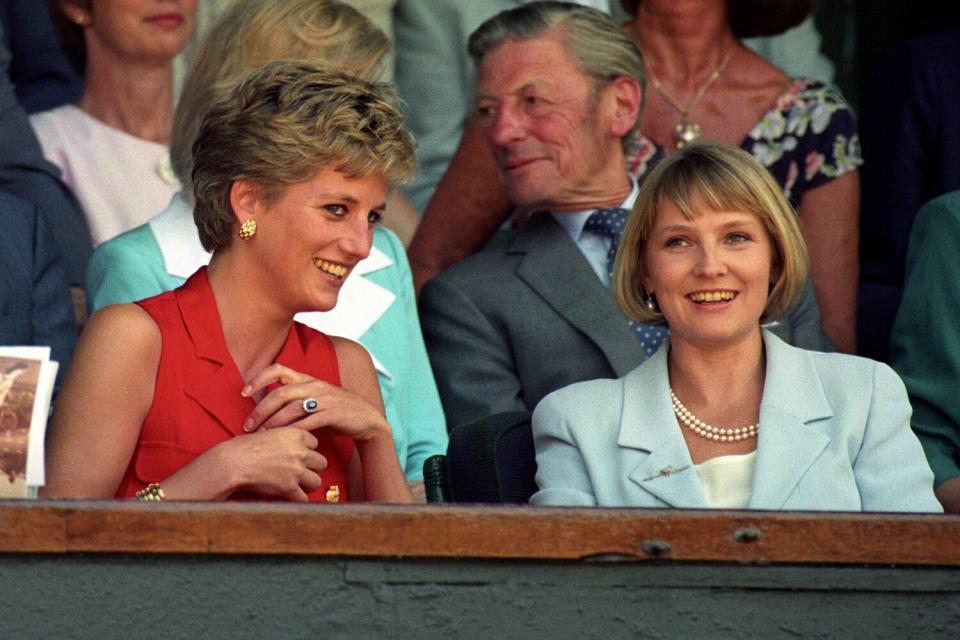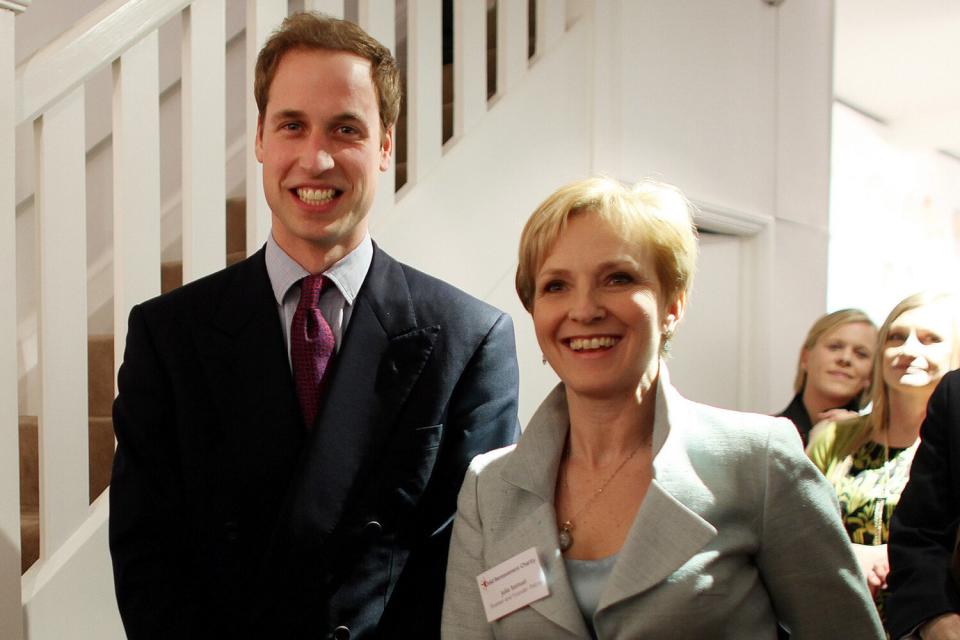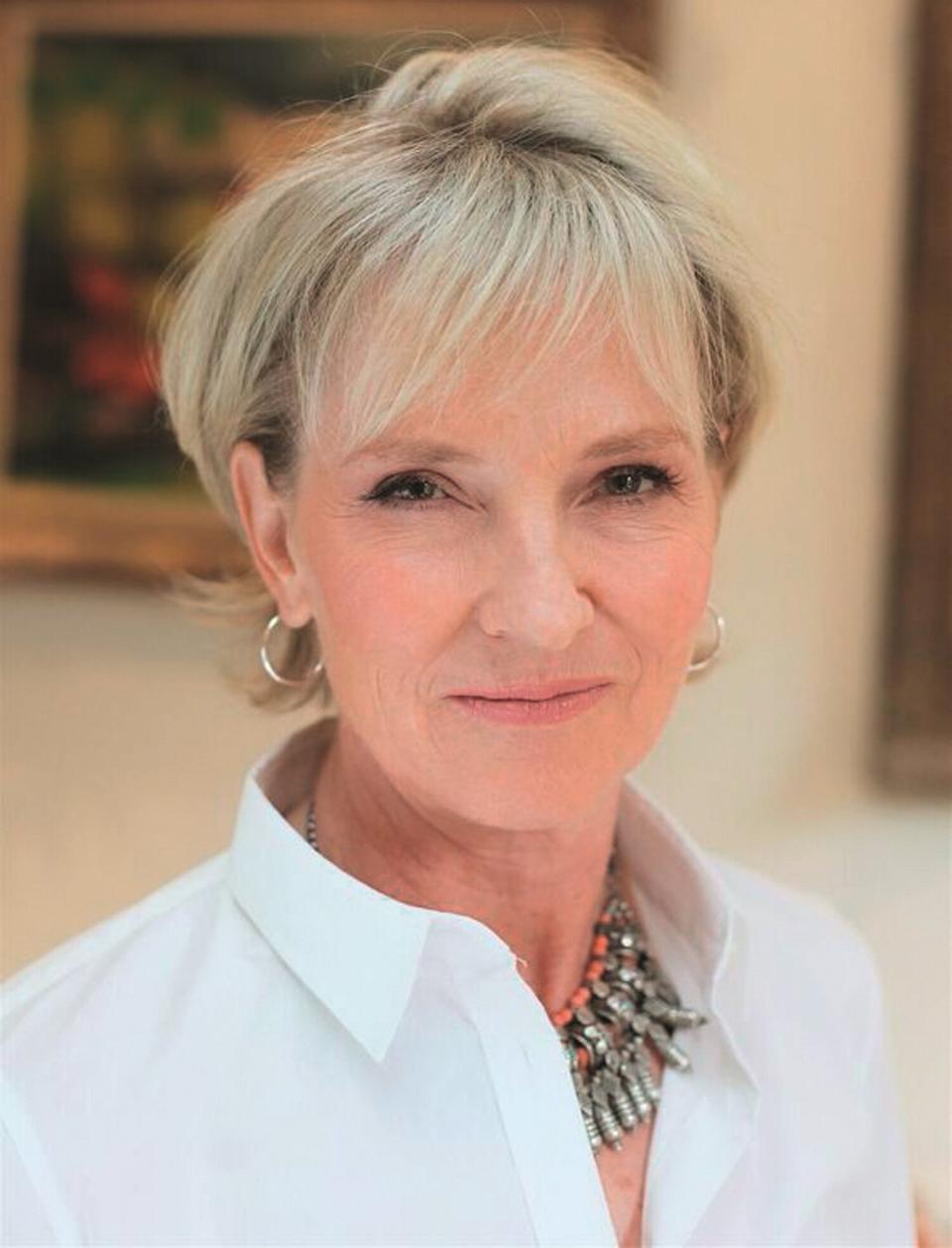Princess Diana's Therapist Friend Shares How to Survive the Stress of Thanksgiving Guests

Justine Stoddat Julia Samuel
When family and other houseguests arrive for the holidays, a rise in stress levels seems inevitable and long-dormant strains can be unearthed.
Well, help is at hand!
A new book by bestselling psychotherapist Julia Samuel, Every Family Has A Story (out on November 15), contains advice in the form of 12 "touchstones" to help tackle potential issues.
Samuel, who was a close friend of the late Princess Diana and is a godmother to Prince George, 9, says this year is potentially even more problematic for many. Not only does it follow two years when holiday periods were largely curtailed by COVID, heightening the desire to reunite, but pressures also come this year in the form of a squeeze on household budgets and the ongoing stress of the fraught political atmosphere.
"What's often really difficult to navigate is difference," Samuel says. "One of my touchstones is allowing difference. It could be how there's often a fight of how long you cook the turkey or the order that you do things in — there can be a lot of control freakery over the minutia. So one of the things to think about before you get to Thanksgiving is, 'What are landmines that I know always happen?' "
"Is it because my mother-in-law gets drunk by seven o'clock and then nothing gets cooked? Or is it that my brother always picks on my other brother? So maybe talk to your partner or talk to your kids about what you can do that you would do differently this year so you don't pile in and throw another bomb in the existing landscape," she says.

Neil Munns - PA Images/PA Images via Getty Images Princess Diana and Julia Samuel
And if issues do come up, "take a breath, or have a glass of water, or physically take yourself out maybe for a walk because when we're in a heightened state, we have no impulse control. Then we say the things that you can't unsay, and then everything escalates and the laundry list of previous injuries, 'every year you always...' gets played out."
A second useful tool concerns how to "repair after a fight," as Samuel calls it. "It's unlikely that the fight was how you put the plate in the dishwasher. Do you feel unappreciated? Whatever it is, if you identify it, you can repair it as often those moments are opportunities to repair what keeps getting hurt and keeps getting triggered."
The advice works for both the visitor and the host, she says.
"The other element to remember is that we have a particular part of our brain that is to do with place," she says. "So if even as a 45-year-old adult or a chairman of a business or famous musician or if you're unemployed, when you go back into your house and your family of origin, your whole body remembers."
"The sight, smell sound of the place, your parents' tone of voice reverts you back to being a 5-year-old. And you can start operating from a kind of teenage rebellion thing, and you just can't believe you are being that version of yourself when outside of the home you are very different."

Doubleday Canada
Samuel, who will be hosting Christmas at home in London for her four children and nine grandchildren, adds, "It's the same for the parents. People who are hosting, they suddenly become much bossier not recognizing that their children are 50 or whatever they are."
She says it is about "recognizing that and being more aware of what you are likely to want to say and then 'Is that what I really want to say?' "
In her new book, Every Family Has a Story, Samuel draws on her sessions with a wide variety of families, across multiple generations. Her book features the stories of eight families, each one concentrating on a different stress or trauma. "I really wanted to share was the transgenerational patterns and the impact of multiple generations on each individual in the family," she tells PEOPLE. "And that is both how you learn how to deal with difficulty, but also the maladaptive ways of coping that can make the difficulty worse. And that those patterns do get passed down from generation to generation.

David Bebber/WPA Pool/Getty Images Prince William and Julia Samuel
Can't get enough of PEOPLE's Royals coverage? Sign up for our free Royals newsletter to get the latest updates on Kate Middleton, Meghan Markle and more!
She adds, "Every client who walks through my door spends great tracks of time talking about their family, their family in the present and their family of origin. The research shows — all of us individually know — that families really matter and when we can rely on them and feel secure in them and that they are the safe place we can go in times of trouble or to celebrate, that they're the bedrock of our lives and enable us to survive all sorts of incredibly difficult traumas."
"This idea of a perfect family doesn't exist. Families, you know, live on a spectrum of dysfunction and function, depending on the external pressures and your internal experiences. At particular times in people's lives — and I think now would be a peak one with all that's going on in the world with a sort of permacrisis that we're finding a way of enduring — everybody's individual capacity and resilience is diminished."
"What I wanted to do was show how families actually are in particular crises. And so for someone reading it, they would recognize the emotions, the conflicts, the difficulties and they would recognize what actually helps. And so to use that as a basis to access support for themselves and how to be with themselves in their families."
Samuel is always learning from her clients too. "We're always going to make mistakes, and we can't get it right all the time. Working to repair after the mistake, I think that was one of the big things that came through to me is that it's never too late to repair that. You really can go back and rework what went wrong and try and find a way of building the relationship through a mistake."
Samuel began life as a counselor almost by accident. The youngest of five children, a daughter of a member of the banking arm of the Guinness family, she had been an interior designer in the 1980s and, by chance, she was asked to head up the fundraising arm of Birthright, a mother and baby charity (now called Wellbeing of Women). She had no experience with families losing children and soon afterward was asked to visit a support group — a moment that opened her eyes to the world of counseling. She now has three decades of experience of working within the public health NHS and her own private practice. A founder trustee of Child Bereavement U.K., she initially had the support of her close friend Princess Diana. Prince William took on the patronage in 2009, continuing the work of his late mother.

Justine Stoddat Julia Samuel
RELATED: Prince William's Earthshot Prize Finalists Announced — Meet the Changemakers Repairing Our Planet
Recently, Samuel turned to her own family to take part in a new partnership: A podcast featuring two of her four children — Emily and Sophie — who are psychotherapists too. During the Therapy Works podcast, Samuel talks to a famous person, from Minnie Driver to Richard E. Grant and, or an ordinary client. Afterward, Emily and Sophie join her to talk about the themes that had come up.
"I've been blown away how good they are," she beams. "Their knowledge and insight and they see things completely differently to me in a way that I haven't seen it. We don't really talk about it outside when we have the meetings so that we could still be parents and daughter and grandmother. So we have this hour every week when we meet up and we boundary it with that. It's been a real pleasure."
And she has learned from them. "Young people have a very different perspective. I'm a person of my time. I'm 63 brought up in the way I was brought up. I've trained and I go on training and keep learning and reading, but I'm still a 63-year-old white woman, you know? And they are young people with a completely different view of the world that is refreshing and exciting."

 Yahoo Sport
Yahoo Sport 





































